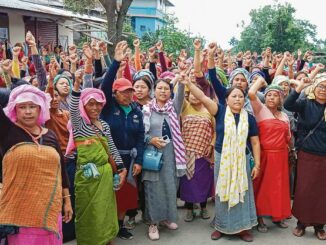
New Delhi (TIP): India made its first advance commitments for a coronavirus vaccine under development, announcing a Rs 1,500 crore deal with Hyderabad’s Biological E to stockpile 300 million doses of its candidate that has shown promising signs but is currently in the last stage of clinical trials.
The commitment, announced by the Union health ministry on Thursday, June 3, represents the first time the government has placed an advance purchase order, which typically helps secure large volumes of doses, and has been a strategy used by countries that managed to procure doses early. “The arrangement with Biological-E is part of the wider endeavour of Government of India to encourage indigenous vaccine manufacturers by providing them support in research & development and also financial support,” the ministry said in a statement.
The move comes a day after the Supreme Court pulled up the government for its vaccination policy and gave it two weeks to submit all files and notings that “reflect its thinking and the culmination” of its vaccination policy, which judges said appeared to be “arbitrary and irrational”.
The criticism around the Covid-19 vaccination drive stems from an acute shortage of doses in the country, where under 19% of the 940 million eligible people have received at least one dose.
The order that the government disclosed on Thursday will help India get guaranteed access to large doses of the vaccines made by Biological E once the dose is approved. The amount committed will go towards development as well as stockpiling of the doses in advance, which will help push large quantities as soon as clearances are secured. The vaccine is likely to be marketed as Corbevax, according to names previously disclosed by the company.
The 300 million doses appeared to be the cumulative capacity that Biological E told the Centre it will be able to produce for the rest of 2021. Niti Aayog’s VK Paul on May 13 said the company’s 300 million doses was among the 2.16 billion doses of various vaccines that the government was expecting to be available between August and December. It was not immediately clear when the 300 million doses will begin to become available since Phase III trials were only approved in late April, and the developers – Biological E and its partner, Texas-based Baylor College of Medicine (BCM) – are yet to release data from the Phase 1/2 studies.
Dr Peter Hotez, the dean of BCM’s National School of Tropical Medicine and one of the scientists involved in the development, said in an interview to an Indian TV channel last month that clinical trials have shown there will be cross-protection against a number of variants of concern. The vaccine is made using a tried-and-tested platform that is also used in the development of the Hepatitis B vaccine, which Biological E has past experience of making.
In an interview to HT in January, BCM’s Maria Elena Bottazzi said that the vaccine could particularly help inoculate children. “A hepatitis vaccine platform will also help be reassuring for paediatrics use since mRNA and viral vectors have never been used in children,” she said. Source: HT





Be the first to comment